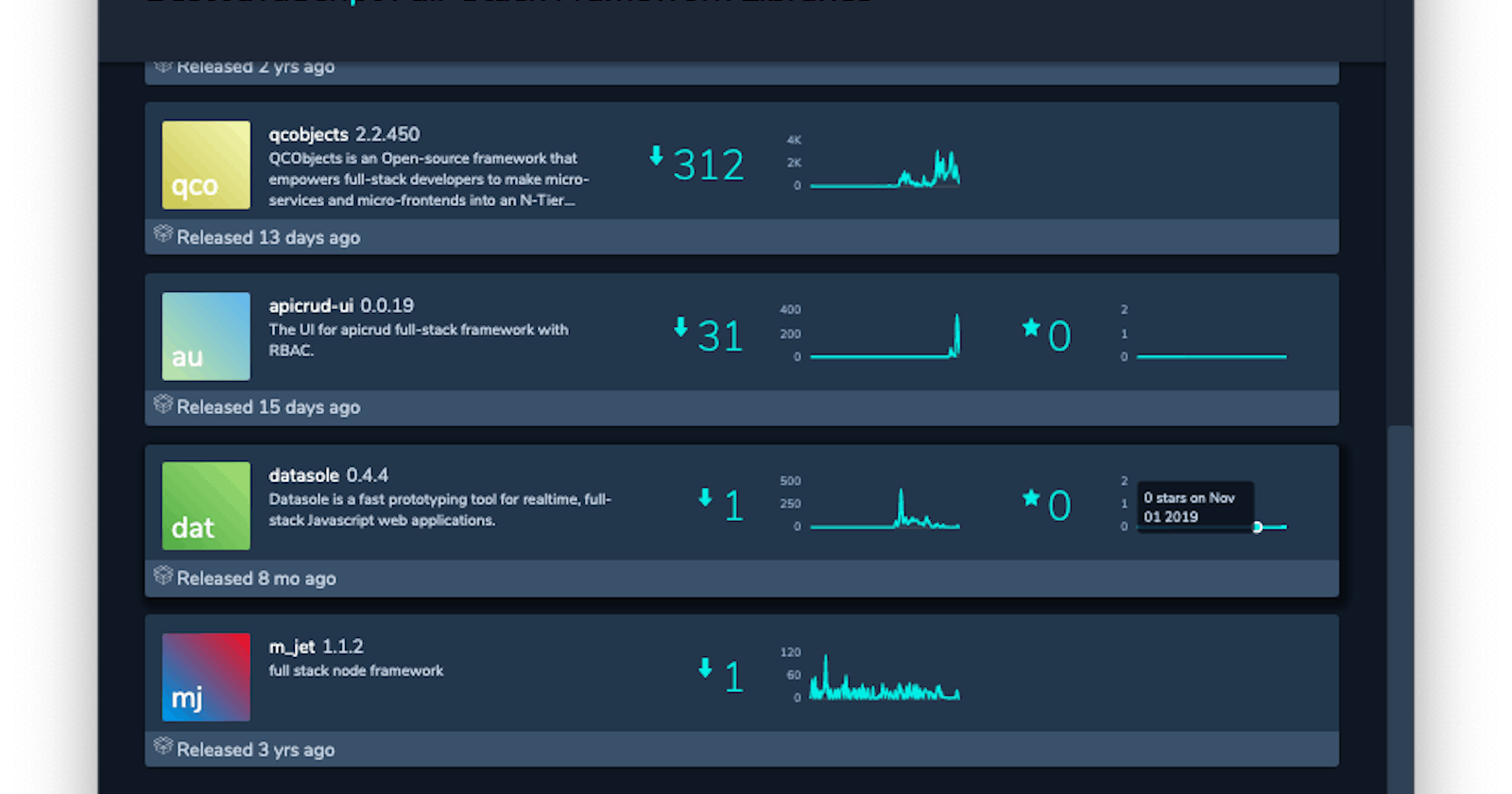Why is QCObjects being ranked in the top 10 JavaScript Full-Stack Framework Libraries in 2020?
A comparison of the top 10 JavaScript Full-Stack Framework Libraries: koa-web-kit, cabloy, egg-born, clout-js, t-rex-js, qcobjects, apicrud-ui, and more was recently made in the Openbase site, a website to compare JS packages with reviews and unparalleled insights.
But what makes QCObjects to be ranked in the top 10 JavaScript Full-Stack Framework Libraries in 2020?
Well, here is a few reasons:
Great Documentation
Like good code, good documentation is difficult and time consuming to write. So as a consequence, not every open source framework out there is making enough effort in doing a great documentation. In an article written by Adam Scott published in O'Reilly called The eight rules of good documentation he points that a great documentation has to have eight rules:
- Write documentation that is inviting and clear
- Write documentation that is comprehensive, detailing all aspects of the project
- Write documentation that is skimmable (capable to be read through quickly)
- Write documentation that offers examples of how to use the software
- Write documentation that has repetition, when useful
- Write documentation that is up-to-date
- Write documentation that is easy to contribute to
- Write documentation that is easy to find
And he points one more that says keeping an updated README file and linking to more extensive documentation at the top of the README when necessary helps to keep discoverability simple.
Following that advice, QCObjects has an extensive README.md file that explains almost everything you need to know about how to code deeply using the most powerful features of QCObjects. Also there is an emerging rise of tutorials around the web that you can find to learn specific aspects of the use of this framework.
Performant
QCObjects encourages and empowers developers to code fancy, clean and quick. That means that the final application that is generated with QCObjects will be fast enough on mobile devices networks. A powerful feature that is the custom cache for components is also enabling the recurrent load of components to be even faster, increasing the speed of the load in more than 50% every time. Also almost every resource used is loaded on-demand, included subcomponents and packages.
Easy to use
QCObjects is easy to use, to start the development process you only need to do one step and the CLI tool will generate all the shell artefacts you need on a fully customisable pre-generated app. Learn more about how to quick start making your progressive web app with QCObjects here
Highly customisable
QCObjects is meant to reduce the hassle of making editions and changes that is actually present when working with other frameworks. Forget about the problems dealing with "spaghetti code". With QCObjects you can easily split your code, and you are encouraged from the very beginning to do so. Also it is compatible with a bunch of JS libraries out there to make customisation process fast-forward.
Bleeding / Cutting Edge
The growth in npm downloads of QCObjects in the last months was unprecedented and QCObjects was featured by British Herald as the most advanced framework for modern software development. You can read the article written by Ren Leen here
Also QCObjects has been exhibited as ALPHA in WebSummit Lisbon 2019, and RISE Conference in Hong Kong. Giant companies like Amazon Web Services and DigitalOcean are currently distributing QCObjects across the globe in their cloud platforms and marketplaces.
Responsive Maintainers
Jean Machuca, author of QCObjects, is doing the maintenance of the framework in person, attending every issue using the feedback of the open source community, the big companies that are actually becoming sponsors of the framework and country governments, universities and other institutions that are becoming a part of the growing open source community and QCObjects ecosystem in the whole world.
You can send enquires, download the code or start using QCObjects either going to the main website https://qcobjects.com or https://qcobjects.dev or to the official GitHub repo

